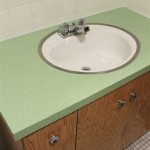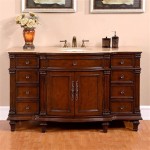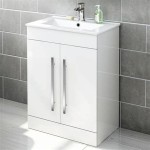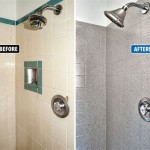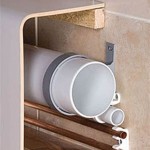Essential Aspects of Best Material for Bathroom Vanity Unit
The bathroom vanity is a centerpiece of any bathroom design, serving both functional and aesthetic purposes. Choosing the right material for your vanity unit is crucial to ensure durability, water resistance, and a cohesive aesthetic. This article delves into the essential aspects of selecting the best material for your bathroom vanity unit, guiding you towards an informed decision. ### Durability and Water Resistance Bathrooms are prone to moisture and humidity, making durability and water resistance paramount in choosing vanity materials. Solid wood, such as oak or maple, offers excellent durability and can withstand moisture well. However, it requires regular maintenance to prevent water damage. Laminates and engineered woods are more budget-friendly options with good durability and water resistance. Engineered woods are created by bonding multiple layers of wood together, resulting in increased strength and resistance to warping. ### Style and Aesthetics Personal preference plays a significant role in vanity material selection. Natural materials like wood provide a timeless and elegant look, while laminates offer a wide range of styles and colors to match any bathroom decor. Solid surface materials, such as acrylic or quartz, are non-porous and seamless, offering a modern and upscale aesthetic. ### Maintenance and Cleaning Low-maintenance materials are essential for busy bathrooms. Laminates and engineered woods require minimal cleaning and maintenance, only needing a wipe-down with a damp cloth. Solid wood requires more attention, as it needs to be sealed or finished to protect it from moisture. Solid surface materials are highly durable and easy to clean, making them an ideal choice for those seeking low-maintenance options. ### Environmental Considerations Sustainability is an important factor in material selection. Eco-friendly materials, such as bamboo or recycled wood, provide durable and stylish options while minimizing environmental impact. Bamboo is a rapidly renewable resource, and its use in vanity units reduces deforestation. Recycled wood helps reduce waste and promotes a circular economy. ### Budget Cost is a crucial consideration when choosing vanity materials. Laminates and engineered woods offer budget-friendly options, while natural wood and solid surface materials may be more expensive. However, the durability and longevity of these materials can offset the initial investment over time. Consider your budget and the long-term value of the vanity unit when making a decision. ### Conclusion Selecting the best material for your bathroom vanity unit requires careful consideration of durability, water resistance, style, maintenance, environmental impact, and budget. By understanding these essential aspects, you can make an informed decision that will enhance the functionality and aesthetics of your bathroom for years to come.
What Are The Best Materials For Bathroom Vanities

Best Materials Finishes For Bathroom Cabinets
What Are The Best Materials For Bathroom Vanity Countertops Toulmin Kitchen Bath Custom Cabinets Kitchens And Design Remodeling In Tuscaloosa Birmingham Alabama

Which Material Is Best For Your Bathroom Vanities

What Is The Best Material For Bathroom Cabinets Comparison Of Several Commonly Used Materials

Best Material For Your Bathroom Vanity Cabinets Lesso Blog

A Guide To Materials And Finishes For Bathroom Design Cafe

What S The Best Material For Bathroom Vanity Cabinets Allikristé

Best Material For Your Bathroom Vanity Cabinets Lesso Blog

Best Materials Finishes For Bathroom Cabinets
